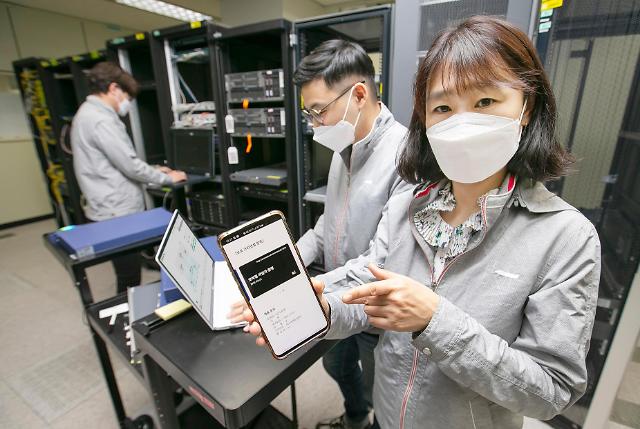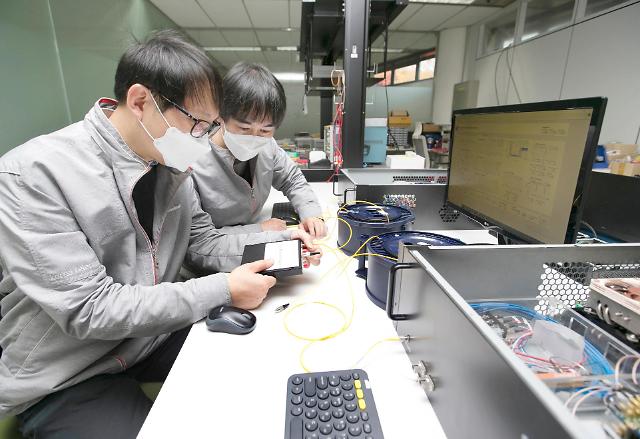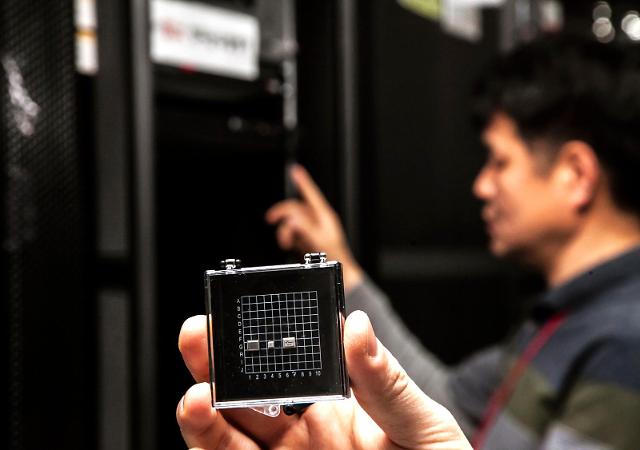
[Courtesy of KT]
SEOUL -- KT, a major telecom company in South Korea, released a new technology that enables the quick and easy application of quantum cryptography communication with smartphone applications. The "quantum hybrid" technology is efficient in terms of cost and management as users do not need to purchase dedicated terminals.
KT said it would expand its technology to 5G application services, where security is very important, such as finance and connected cars. "We will continue to research and commercialize quantum cryptography platforms that customers can use with confidence in the digital transformation era," KT's infrastructure research center head Lee Jong-sik said in a statement on April 20.
Quantum hybrid technology can be applied with a single installation of the QS-VPN app to smartphones, KT said, adding it combines quantum key distribution (QKD) technology with post-quantum cryptography (PQC) technologhy to fundamentally block hacking threats from a 5G virtual private networks (VPN).
QKD is a secure communication method that implements a cryptographic protocol involving components of quantum mechanics. PQC refers to cryptographic algorithms that are thought to be secure against an attack by a quantum computer.
Cryptographers are designing new algorithms to prepare for a time when quantum computing becomes a threat. KT has combined PQC certification procedures and decentralized identity (DID), a blockchain-based identification system, to enhance the security of user authentication without association with third-party certification authorities.
DID is a new type of encrypted identifier that normally uses public keys to establish secure communication channels. KT said that DID technology stores personal information on a smartphone terminal to prevent the risk of personal information leakage, and PQC-based authentication technology checks a certificate containing personal information to identify users and device access.
In the 5G era, the importance of cybersecurity in mobile communications will rise exponentially. Quantum cryptography has emerged as an essential solution for safeguarding critical information because it is impossible to copy data encoded in a quantum state.
KT has been selected by the Korea Information Society Agency (NIA) to set up and test a quantum cryptography network. KT and LGU+, a mobile carrier, have jointly developed a new quantum cryptographic technology to win approval from the International Telecommunication Union (ITU), an international telecommunication technology standardization governing body, as ITU's international standard for quantum cryptography communication networks.
In March, KT unveiled a quantum communication technology that enables smartphones to communicate with each other using quantum encrypted voice data. The technique can enable private companies and customers to use quantum encryption technology without a physical scrambler device. Voice is encrypted to provide protection against real-time hacking attacks designed to eavesdrop on conversations.
A scrambler encodes a message or data at the sender's side. If a receiver is not properly equipped with a descrambling device at the receiver's side, the message cannot be deciphered. Scrambling is commonly used in satellite communications, radio relay communications, and public switched telephone networks. KT's quantum encryption scrambler technology is capable of encrypting and decrypting voice data.




